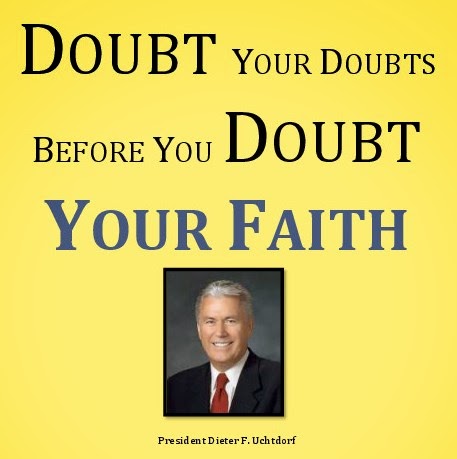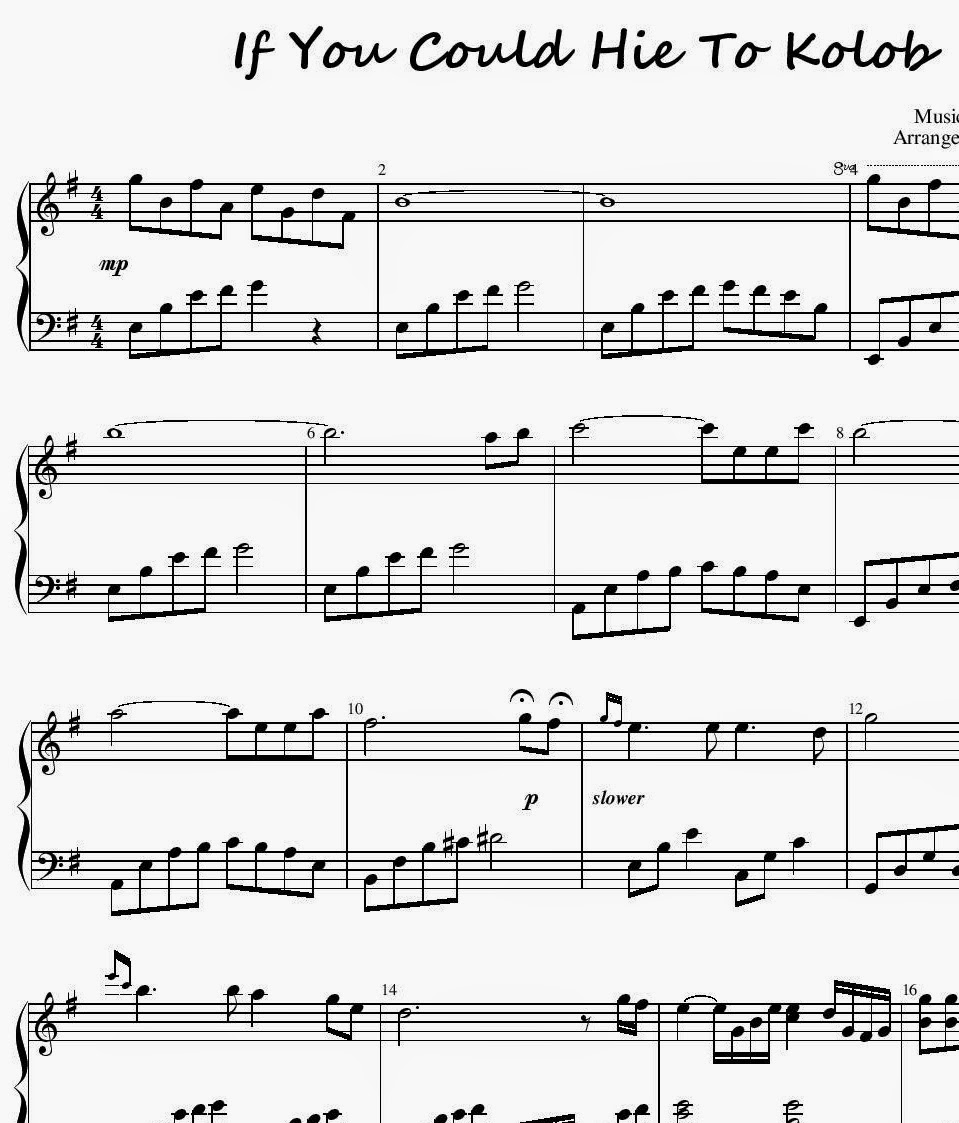I can't remember which section it is in, but I remember reading about the second coming of Christ in Doctrine & Covenants. It is the section when Joseph Smith asks Christ, ¨When are you coming to the earth for the second coming?¨ He doesn't really give him an answer until the third time Joseph asks and He responds with ¨look if you live to be 85, you will see my coming.¨ Just a thought, what do you think about that scripture? I never gave it much thought, but I was talking about it with my branch president yesterday and we came to a very interesting conclusion, but first I want to see what you think.
This was a question posed by Elder Hackleman to his mom. The Section he is referring to is:
Doctrine and Covenants Section 130:
14 I was once praying very earnestly to know the time of the coming of the Son of Man, when I heard a voice repeat the following:
15 Joseph, my son, if thou livest until thou art eighty-five years old, thou shalt see the face of the Son of Man; therefore let this suffice, and trouble me no more on this matter.
16 I was left thus, without being able to decide whether this coming referred to the beginning of the millennium or to some previous appearing, or whether I should die and thus see his face.
17 I believe the coming of the Son of Man will not be any sooner than that time.
Doubt your doubts, before your doubt your faith. President Dieter F. Uchtdorf
(Asking questions does not mean you lack faith, but shows you are studying, pondering, and learning.)
Answer Quoted from:

Question: Did Joseph Smith prophesy that Jesus Christ would return in 1890?
Jesus Christ stated that no mortals or angels would know when He would return
It is important to realize that while Jesus Christ resided on the earth he stated that no mortals or angels would know when He would return:
But of that day and hour knoweth no man, no, not the angels of heaven, but my Father only" (Matthew 24:36).
Because we do not know, we need to constantly be ready for his return, for "in such an hour as ye think not the Son of Man cometh" (Matthew 24:44).
In February 1835, Joseph Smith is reported to have said that "fifty-six years should wind up the scene"
Joseph Smith did make several interesting statements about seeing the Savior. B.H. Roberts in History of the Church notes the Prophet's remark in 1835 when he is reported to have said that,
...it was the will of God that those who went Zion, with a determination to lay down their lives, if necessary, should be ordained to the ministry, and go forth to prune the vineyard for the last time, or the coming of the Lord, which was nigh—even fifty-six years should wind up the scene.[1]
In Feb 1835, fifty six years in the future was February 1891. This would be shortly after Joseph's 85th birthday (he was born 23 December 1805).
Joseph made continuous reference to this date in light of a revelation which he reported. It is recorded in D&C 130:14-17, and it is clear that the revelation leaves the exact date of Christ's second coming much more uncertain. Whatever Joseph meant or understood by "wind up the scene," it must be interpreted in light of the revelation as he reported it, and the conclusions which he drew from it.
This particular revelation is a favorite of anti-Mormon critics. They have misquoted it, misreported it, misinterpreted it and misexplained it. Most often they simply do not complete the quote, making it appear that the Prophet said something he didn't.
Joseph acknowledged as he recorded this revelation that he didn't understand its meaning or intent
The revelation is reported in abbreviated form, and Joseph acknowledged as he recorded it that he didn't understand its meaning or intent:
I was once praying very earnestly to know the time of the coming of the Son of Man, when I heard a voice repeat the following: Joseph, my son, if thou livest until thou art eighty-five years old, thou shalt see the face of the Son of Man; therefore let this suffice, and trouble me no more on this matter. (D&C 130:14-15).
Many critics end the quote at this point, and then they hope the reader will assume that the statement is a prophecy that the Savior would come in the year 1890 or 1891, since the Prophet Joseph was born in 1805. (Other critics do not even bother to cited D&C 130, and simply rely on the quote from the Kirtland Council Minute Book of 1835, reproduced in History of the Church.)
Joseph expresses his uncertainty: "I believe the coming of the Son of Man will not be any sooner than that time"
However, if the reader will continue further in that passage, they will see how Joseph Smith himself understood the revelation, unfiltered through note-takers or critics who wish to explain his meaning:
I was left thus, without being able to decide whether this coming referred to the beginning of the millennium or to some previous appearing, or whether I should die and thus see his face (D&C :130).
The actual content of Joseph's prophecy--if personal opinion can be said to be prophecy--does not occur until the next verse:
I believe the coming of the Son of Man will not be any sooner than that time.(D&C 130:17.)
Without a doubt, Joseph's belief proved correct. The Lord did not return to the earth for His Second Coming before that time.
At least twice, as is recorded in the Doctrine and Covenants, Joseph saw the face of the Son of Man
But there are other aspects of fulfillment that should also be considered. We do not know when it was that the Prophet earnestly prayed to know the time of the Lord's coming. The context, (verse 13), shows that it may have taken place in 1832 or earlier. At least twice, as is recorded in the Doctrine and Covenants, Joseph saw the face of the Son of Man. D&C 76:20-24 and D&C 110:2-10 both record appearances of the Lord Jesus Christ, either of which may constitute fulfillment of the Lord's prophetic promise. He may also have seen the Lord's face at the time of his death in 1844, as he pondered in D&C 130:16.
Joseph made reference to the incident on at least two other occasions, and indicated that his belief was not that the Lord would come by the time of his 85th birthday, but rather that the Lord would not come before that time, which of course was a correct prophecy.
In the History of the Church:
I prophesy in the name of the Lord God, and let it be written--the Son of Man will not come in the clouds of heaven till I am eighty-five years old.[2]
Again, Joseph Smith doesn't say the Lord will come then, but that He will not come before that time. The return to his age 85 shows that all these remarks derive from the same interpretation of his somewhat opaque revelation from the Lord, who seems determined to tell his curious prophet nothing further.
Joseph denies that anyone knows an exact date
Later, Joseph Smith again prophesied on the subject of Christ's coming:
I also prophesy, in the name of the Lord, that Christ will not come in forty years; and if God ever spoke by my mouth, He will not come in that length of time. Brethren, when you go home, write this down, that it may be remembered. Jesus Christ never did reveal to any man the precise time that He would come. Go and read the scriptures, and you cannot find anything that specifies the exact hour He would come; and all that say so are false teachers.[3]
This remark was made on 10 March 1844. It echoes a teaching given through Joseph in the Doctrine and Covenants in March 1831:
And they have done unto the Son of Man even as they listed; and he has taken his power on the right hand of his glory, and now reigneth in the heavens, and will reign till he descends on the earth to put all enemies under his feet, which time is nigh at hand—I, the Lord God, have spoken it; but the hour and the day no man knoweth, neither the angels in heaven, nor shall they know until he comes. (D&C 49:6-7, emphasis added)
Thus, from the beginning to the end of his ministry, Joseph Smith denied that a man could or would know the date of the second coming of Christ. (Joseph's remarks may have been instigated by the intense interest among religious believers in William Miller's prophecy that Christ would return by 1843.)






